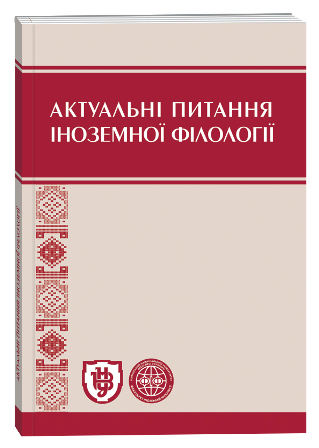SPEECH AGGRESSION IN THE INTERNET MEDIATED COMMUNICATION
Keywords:
speech aggression, Internet communication, trolling, flaming, cyberbullingAbstract
The article deals with the Internet communication which is considered as a process of mutual information exchange between individuals using verbal and non-verbal communication systems, computer-mediated communication, which opens a new dimension in human communication and makes it possible to store and quickly transfer large amounts of information, use of audio and video channels in on-line communication, that is, linear direct contact with the respondent. The article outlines a destructive communicative intent in the form of verbal aggression in different types of Internet communication. The emphasis is laid on the manifestation of social aggression in the works of national and foreign researchers. The article covers the difference of such expressive, aggressive forms of online interaction as trolling, flaming,and cyberbulling in social networks and popular sites and offers a typology of the most common types of trolling, flaming and cyberbulling. It is determined that virtual communication with violation of ethics in networking is used in the process of personalized communication between parties interested in more recognition, publicity or epatage, and in the anonymous user interaction, which is made without the possibility of identifying the real subject of virtual communication in order to control the lives of others, to manipulate their mood and behavior and to satisfy one’s desires.
References
Балясникова О. В. Психосемантика конфликта в интернет-текстах / О. В. Балясникова // Материалы Х Междунар. конгресса междунар. о-ва по приклад. психолингвистике. – М., 2013. – С. 163–169.
Внебрачных Р. А. Троллинг как форма социальной агрессии в виртуальных сообщестах / Р. А. Внебрачных // Вестник Удмурт. ун-та. Сер. «Философия. Социология. Психология. Педагогика». – Ижевск, 2012. – Вип. 1. – С. 48–51.
Матвеева Т. В. Нормы речевого общения как личностные права и обязанности, формируемые в естественной среде коммуникации / Т. В. Матвеева // Юрислингвистика-2: русский язык в его естественном и юридическом бытии : межвуз. сб. науч. тр. – Барнаул, 2000. – С. 46–55.
Могилко С. В. Тролінг як спосіб психологічної маніпуляції в інтернеті / С. В. Могилко // Вісник Черкас. ун-ту. Сер. «Філологічні науки». – 2008. – С. 57–60.
Найдьонова Л. А. Кібербулінг або агресія в Інтернеті: способи розпізнавання і захист дитини : [метод. рекомендації] / Л. А. Найдьонова. – Вип. 4. – К. : І-т соц. та політ. психології НАПН України, 2011. – 34 с. – (Сер. «На допомогу вчителю»).
Трофимова Г. Н. Особенности негативных тенденций в массовой коммуникации / Г. Н. Трофимова // Материалы Х Междунар. конгресса междунар. о-ва по приклад. психолингвистике. – М., 2013. – С. 174–176.
Харламова І. Насильство та жорстокість у школі. Реалії сучасності : метод. рекомендації щодо роботи з дітьми / І. Харламова // Соціальний педагог. –2007. – № 9. – С. 15–20.
Aro J. The cyberspace war: propaganda and trolling as warfare tools / Jessikka Aro // European View. – 2016. – Vol. 15, Issue 1. – P. 121–132.
Monks C. P. Definitions of bulling: Age differences in understanding of the term and the role of experience / C. P. Monks, P. K. Smith // British Journal of Developmental Psychology. – 2006. – Vol. 24. – P. 801–821.
Postman N. The humanism of media ecology. Paper presented at the First Annual Convention of the Media Ecology Association. – N. Y. : Fordham University, 2000.
Smith P. Cyberbulling: Its Nature and Impact in secondary school pupils / [P. Smith, J. Mahdavi, M. Carvalho, S. Fisher, S. Russel, N. Tippet] // Journal of Child Psychology and Psychiatry. – 2008. – Vol. 49. – P. 376–385.
Downloads
Published
How to Cite
Issue
Section
License
Copyright (c) 2025 Наталія Волошинович

This work is licensed under a Creative Commons Attribution 4.0 International License.







